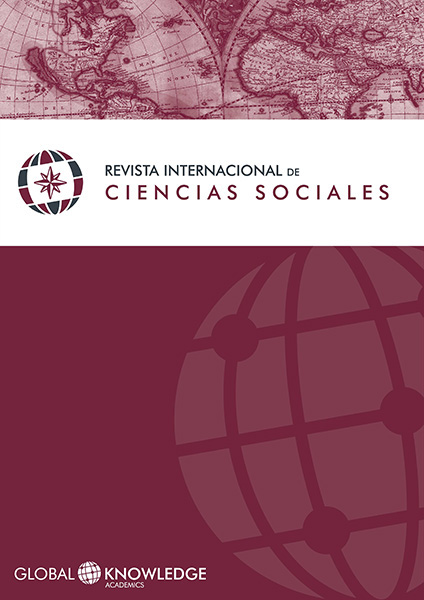Education, Interculturality and Critical Pedagogy for Coexistence in a Globalized Society
DOI:
https://doi.org/10.37467/gka-revsocial.v8.2166Keywords:
Interculturality, Education, Dialogue and Cultural Exchange, RespectAbstract
The present paper analyzes of the relationship between society and culture, giving way to the topic of interculturality. Interculturality is rooted in Mexico in the educational modality. This has made it possible to tackle education as a vital strategy for the recognition of different cultures and their relationship in an increasingly changing world, following the current economic model, where dialogue and cultural exchange should serve as bridges of coexistence and respect between cultures. Through a supported analysis of critical pedagogy, some proposals are established to achieve an intercultural coexistence in a framework of respect and tolerance.
Downloads
Global Statistics ℹ️
|
935
Views
|
1303
Downloads
|
|
2238
Total
|
|
References
Baronnet, B. (2009). De eso que los zapatistas no llaman educación intercultural. Decisio. Saberes para la Acción en Educación de Adultos. Pátzcuaro: CREFAL, 31-37.
Bensasson, L. (2013). Educación intercultural en México ¿por qué y para quién? En: Baronnet, B. y Tapia, M. (Coords.). Educación e Interculturalidad. Política y políticas. México. México: UNAM/CRIM.
Bertely, B. M. (2011). Visiones del continente de la resistencia. En: Meyer, M. L. y Maldonado, A. B. (Coord). Comunalidad, educación y resistencia indígena en la era global (pp.229-242). Oaxaca, México: CSEIIO
Constitución Política de los Estados Unidos Mexicanos. Última Reforma DOF 15-09-2017.
Dias, M.A. R. (2010). ¿Quién creo este monstruo? Educación y globalización: sus relaciones con la sociedad. Revista Iberoamérica de Educación Superior (RIES) México. ISSUE-UNAM/ Universia, 1(2) pp. 7-23. DOI: https://doi.org/10.22201/iisue.20072872e.2010.2.1
Esteva, G. (2011). Más allá de la educación. En Meyer, M. L. y Maldonado, A. B. (Coord). Comunalidad, educación y resistencia indígena en la era global (pp.159-174). Oaxaca, México: CSEIIO.
Freire, P. (1976). Pedagogía del oprimido 15a edición. México: Editorial Siglo XXI.
Freire, P. (2008). Cartas a quien pretende enseñar 2ª edición. Argentina: Siglo Veintiuno editores, S.A.
Holliday, O. J. (2010). Educación popular y cambio social en América Latina. Recuperado de http://www.iepala.es/IMG/pdf/CEAAL_Educacion_Popular_y_Cambio_Social_en_AL-Oscar_Jara.pdf.
INEGI. (2016). “Estadísticas a propósito del…día internacional de los pueblos indígenas (9 de agosto). Datos nacionales. Consultado 16-09-2018. Recuperado de http://www.inegi.org.mx/saladeprensa/aproposito/2016/indigenas2016_0.pdf
Kemmis, S. (1988). El curriculum: más allá de la teoría de la reproducción (4ta edición). Madrid: Ed. Morata.
Kolmans, E. (2008). La educación popular, los enfoques educativos modernos y la metodología CAC. Instituto de transparencia, acceso a la información pública, protección de datos personales y rendición de cuentas INFODF, México.
Macas, A.L.A. (2011). Resistencia y esperanza: el futuro de la comunalidad en un mundo globalizado. En Meyer, M. L. y Maldonado, A. B. (Coord). Comunalidad, educación y resistencia indígena en la era global (pp.199-210). Oaxaca, México: CSEIIO.
Mc Laren, P. (1997). Pedagogía crítica y cultura depredadora. España: Editorial Paidós.
Orán, B. R. & Orán, K.Y. (2011). Leyendo a Noam Chomsky desde una experiencia educativa del pueblo kuna de Panamá. En Meyer, M. L. y Maldonado, A. B. (Coord). Comunalidad, educación y resistencia indígena en la era global (pp.275-279). Oaxaca, México: CSEIIO
Ordorika, S. I. (2006). Educación superior y globalización: las universidades públicas frente a una nueva hegemonía. Andamios. Revista de Investigación Social, 3 (5), 31-47. DOI: https://doi.org/10.29092/uacm.v3i5.340
Real Academia Española. (2014). Diccionario de la Lengua Española (23.a ed.). Madrid, España: Autor.
Sacristán, J.G. (2001). Educar y convivir en la cultura global. Las exigencias de la ciudadanía. Madrid, España: Ediciones Morata, S. L.
Schmelkes, S. (2006). La interculturalidad en la educación básica. Revista Prelac, 3, 120-127.
Tovar, G. M. (2011). Los usos políticos de la interculturalidad: ciudadanía y educación. En Meyer, M. L. y Maldonado, A. B. (Coord). Comunalidad, educación y resistencia indígena en la era global (pp.219-228). Oaxaca, México: CSEIIO
UNESCO (2017). Educación e interculturalidad. Consultado 16-04-2018. Recuperado de: http://www.unesco.org/new/es/quito/education/education-and-interculturality/
Bernabé, V. M. M. (2012). Pluriculturalidad, multiculturalidad e interculturalidad, conocimientos necesarios para la labor docente. Hekademos: revista educativa digital, (11), 67-76.
Walsh, C. (2010). Interculturalidad crítica y educación intercultural. En Viaña, J., Tapia, L., & Walsh, C. (Eds). Construyendo interculturalidad crítica. La Paz: Convenio Andrés Bello, pp. 75-96
Downloads
Published
How to Cite
Issue
Section
License
Those authors who publish in this journal accept the following terms:
-
Authors retain copyright.
-
Authors transfer to the journal the right of first publication. The journal also owns the publishing rights.
-
All published contents are governed by an Attribution-NoDerivatives 4.0 International License.
Access the informative version and legal text of the license. By virtue of this, third parties are allowed to use what is published as long as they mention the authorship of the work and the first publication in this journal. If you transform the material, you may not distribute the modified work. -
Authors may make other independent and additional contractual arrangements for non-exclusive distribution of the version of the article published in this journal (e.g., inclusion in an institutional repository or publication in a book) as long as they clearly indicate that the work was first published in this journal.
- Authors are allowed and recommended to publish their work on the Internet (for example on institutional and personal websites), following the publication of, and referencing the journal, as this could lead to constructive exchanges and a more extensive and quick circulation of published works (see The Effect of Open Access).













